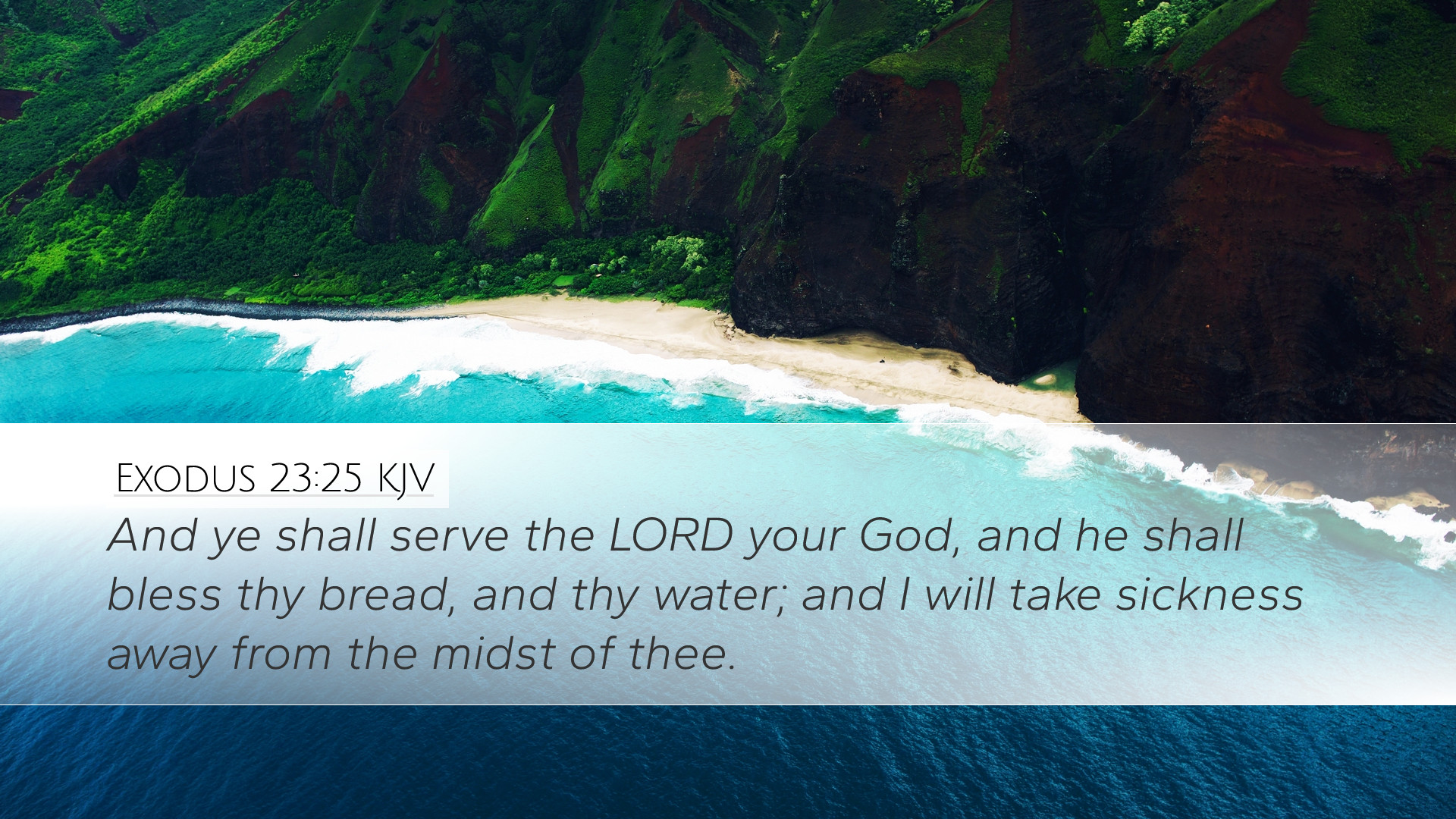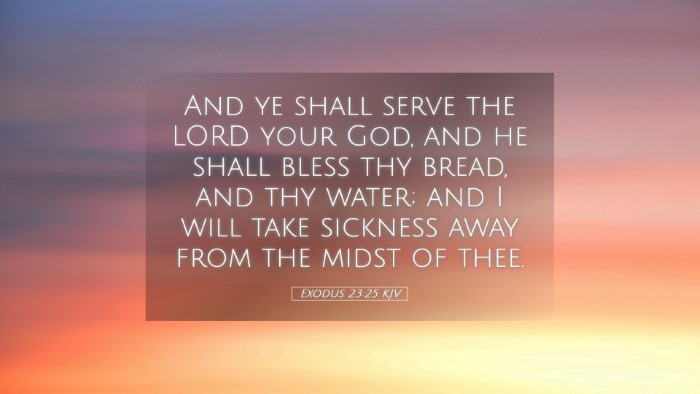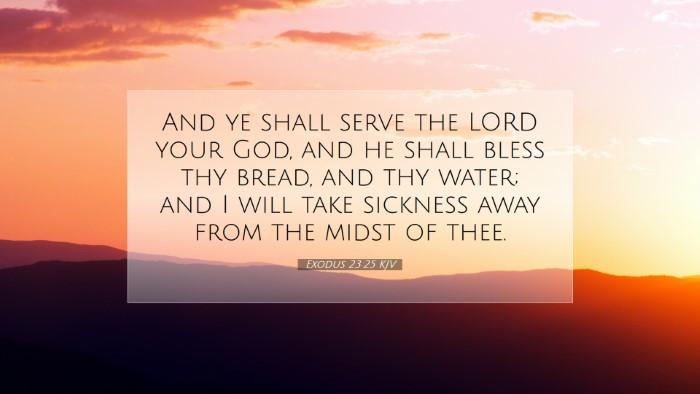Commentary on Exodus 23:25
Exodus 23:25 states: "And ye shall serve the Lord your God, and he shall bless thy bread, and thy water; and I will take sickness away from the midst of thee." This verse is rooted in the covenantal relationship that God establishes with His people. The dynamics of serving, blessing, and divine protection are explored extensively in various public domain commentaries.
Contextual Understanding
The verse comes within the larger framework of the Mosaic Covenant. The preceding passages depict God's laws and guidelines for the Israelites, emphasizing the importance of obedience and worship. This verse highlights the reciprocal relationship between service to God and the blessings bestowed upon the community.
Key Themes
- Divine Service: The command to serve God is presented as foundational.
- Blessings of Provision: God's promise to bless 'thy bread and thy water' signifies His commitment to provide for His people.
- Divine Healing: The removal of sickness underscores God's sovereignty over health and well-being.
1. Divine Service
Matthew Henry emphasizes that service to God is not merely a duty but a privilege. Serving God brings joy and fulfillment, aligning the faithful with divine purpose. The nature of this service is described in both outward actions (worship and obedience) and inward attitudes (gratitude and devotion). Albert Barnes expounds further, stating that true service involves the entirety of one’s being and life practices.
2. Blessings of Provision
The assurance that God will bless 'thy bread and thy water' reveals a profound theological promise. Adam Clarke interprets this more holistically, suggesting that bread and water symbolize essential sustenance. This notion echoes throughout Scripture, where physical needs are met amidst spiritual commitment. Such a promise reinforces the principle that God’s provision often corresponds with faithfulness in His service. The blessings are not merely material but encompass spiritual nourishment as well.
3. Divine Healing
With regard to health, Henry notes that the removal of sickness reflects God's care for His people. This healing can be understood as both physical and spiritual. Clarke elaborates that this promise is particularly poignant for a community that faced numerous afflictions in the wilderness. God’s intervention is a sign of His power and compassion towards those who adhere to His commands.
Theological Implications
The implications of Exodus 23:25 extend beyond the Israelite context into broader theological discourse. The call to serve God invites deep reflection on one's own commitment to divinity amidst contemporary challenges. This verse invites both individuals and communities to consider how faithful service can lead to divine blessings in various forms.
Application for Today
For pastors, students, and theologians, this passage offers several practical applications:
- Holistic Commitment: Evaluate the breadth of one’s service to God—consider both practical worship and daily life.
- Trust in Provision: Encourage reliance on God’s promises for both physical and spiritual needs.
- Emphasis on Healing: Reflect on how God’s promise of health can be applied in prayers for the sick and as a community ethos.
Conclusion
Exodus 23:25 serves as a reminder of the profound relationship between serving God and the blessings that ensue. Through reflections from Matthew Henry, Albert Barnes, and Adam Clarke, the text emerges as a critical point for theological exploration and practical living. The faithful are encouraged to continually seek God’s presence in their lives, trusting that servitude will usher in divine blessings, provision, and healing.


